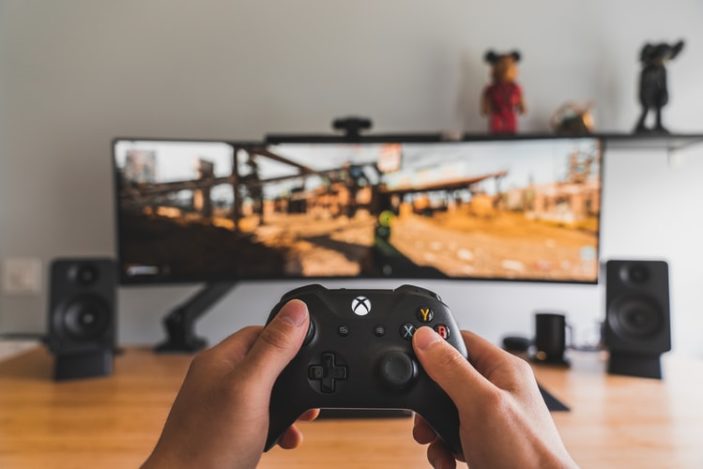
Gaming is one of the most popular modern hobbies, with an enormous and diverse collection of titles available to players all around the world.
However, next time you’re settling down for a session on World of Warcraft or COD, you might have to put up with a barrage of complaints from your family who don’t believe that gaming has value.
But this is very far from the truth. Gaming isn’t just fun, it’s beneficial to your health.
Providing you don’t participate in excess, gaming has been shown to have a number of health benefits, and is used as a means of treatment for certain conditions.
Managing Your Time
Before we go on to look at the different ways that gaming can help, it’s worth pausing for a moment to make sure you have the means to exercise control. It’s easy to get sucked into a game and lose track of time, spending much longer on screen than you intended.
Gadgets such as smart watches and Fitbits are the ideal way to keep an eye on how long you’re playing for and they’re used by many gamers. If you don’t already own one, JB Hi-Fi has some great deals, such as $100 off the Fitbit Versa 3, a snip at $299. There’s also the Apple Watch Series 6 for $649 or if you’re bargain-hunting, the Fadelite Unisex Smartwatch has $279 off the RRP.
These smartwatches help you to monitor the time you spend playing, and also measure your heart rate. If you tend to get stressed, ensuring your heart rate stays within a normal range can help you to stay calm. If you want to crank the technology up a notch, there’s the Instinct E-sports Edition, a smartwatch developed by Garmin specifically for gamers.
Pain Management
Pain management is a challenging area of medicine, due to the body’s ability to grow immune to the effects of analgesia. It’s particularly difficult in children where it’s preferable to avoid strong drugs which is why an alternative approach has been tried..
Research has shown that introducing gaming can be an effective way of managing pain relief, and promoting healing. One pediatric study showed a child with a chronic health condition was able to stop picking the affected area, allowing it to heal for the first time.
These effects are thought to be partially due to the distraction that gaming offers. Researchers believe that players get so involved in their game, it can help the individual to forget about the pain and genuinely provide relief. Gaming has also been used during uncomfortable procedures and studies show that it helps children to tolerate discomfort and pain, requiring lower levels of analgesia.
Physiotherapy
Both occupational therapy and physiotherapy rely on exercises for the arm and hand to improve and treat a range of different conditions. Gaming has been shown to be effective for many groups of patients.
Conventional treatments often include manipulation and passive movements to build up muscle and range, and this can be painful. Gaming is far better tolerated and is effective in achieving the same result. The same positive results were seen in both children and adults, and in conditions which were both chronic and acute where rehabilitation is required.
Developing Core Skills
Children who have a learning disability or who are developmentally delayed in some way may need to practice core skills, or have assistance learning social skills.
Gaming can provide a way for children to practice in these areas, and explore outcomes in a way which is safe and free of consequences. In the same way that a surgeon may use a simulator to develop skills before trying out the real thing, with gaming, children with learning disabilities can practice interaction and communication in a safe and controlled way.
